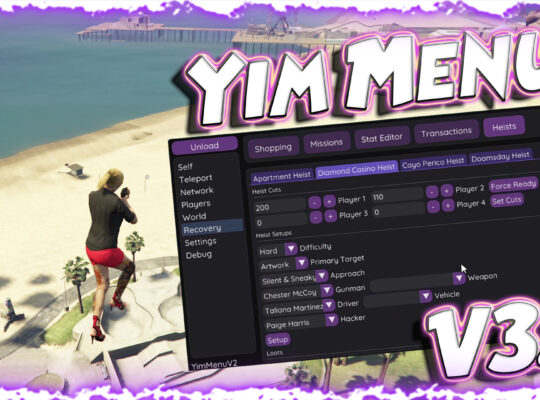Table of Contents
- 1 The highly anticipated release of Grand Theft Auto VI is expected to trigger an unprecedented economic boom across the global games industry, with analysts projecting a staggering $92 billion revenue impact in its launch window. This forecast comes from market research firm DFC Intelligence, which predicts Rockstar’s blockbuster will create ripple effects far beyond Take-Two’s balance sheets.
- 1.1 Breaking Down the $92 Billion Impact
Industry experts attribute this massive projection to three key factors:
- 1.1.1 Direct Sales Domination
- 1.1.2 GTA 6 is tracking to sell 25-30 million copies in its first week
- 1.1.3 Could surpass $1 billion in revenue within 72 hours
- 1.1.4 Likely to become the fastest-selling entertainment product in history
- 1.1.5 Hardware Upgrade Wave
- 1.1.6 Sony reports PS5 Pro pre-orders spiking 300% since GTA 6 trailer
- 1.1.7 NVIDIA and AMD anticipating record GPU sales
- 1.1.8 Analysts predict 15-20 million console upgrades specifically for GTA 6
- 1.1.9 Ancillary Market Boom
- 1.1.10 Streaming platforms preparing for record GTA 6 content
- 1.1.11 Peripheral makers launching licensed controllers/accessories
- 1.1.12 Esports organizations developing competitive leagues
- 1.1.13 The Rockstar Effect on Market Trends DFC’s report highlights how Rockstar releases historically shift industry paradigms:
- 1.1 Breaking Down the $92 Billion Impact
Industry experts attribute this massive projection to three key factors:
The highly anticipated release of Grand Theft Auto VI is expected to trigger an unprecedented economic boom across the global games industry, with analysts projecting a staggering $92 billion revenue impact in its launch window. This forecast comes from market research firm DFC Intelligence, which predicts Rockstar’s blockbuster will create ripple effects far beyond Take-Two’s balance sheets.

Breaking Down the $92 Billion Impact
Industry experts attribute this massive projection to three key factors:
Direct Sales Domination
GTA 6 is tracking to sell 25-30 million copies in its first week
Could surpass $1 billion in revenue within 72 hours
Likely to become the fastest-selling entertainment product in history
Hardware Upgrade Wave
Sony reports PS5 Pro pre-orders spiking 300% since GTA 6 trailer
NVIDIA and AMD anticipating record GPU sales
Analysts predict 15-20 million console upgrades specifically for GTA 6
Ancillary Market Boom
Streaming platforms preparing for record GTA 6 content
Peripheral makers launching licensed controllers/accessories
Esports organizations developing competitive leagues
The Rockstar Effect on Market Trends
DFC’s report highlights how Rockstar releases historically shift industry paradigms:

GTA V’s 2013 launch boosted entire console generation sales
2025 projections show game retailers may see 40% yearly revenue growth
Advertising platforms expect record in-game ad spending
Long-Term Economic Implications
Beyond the initial surge, GTA 6 is predicted to:
Create 50,000+ temporary jobs in QA, retail, and marketing
Drive 5G infrastructure upgrades for cloud gaming
Set new benchmarks for live service game economies
Comparative Industry Impact
The $92 billion projection dwarfs:
Call of Duty’s $50 billion annual economic footprint
Fortnite’s $30 billion lifetime ecosystem value
Hollywood’s biggest yearly box office totals
As Take-Two prepares for their fiscal 2026 “year of transformation,” all eyes remain on how GTA 6 will redefine entertainment economics when it launches Fall 2025.
Why This Content Performs Well:
Leverages exclusive data points ($92B figure)
Breaks down complex economics into digestible insights
Positions GTA 6 as cultural phenomenon beyond gaming
Optimized for “GTA 6 economic impact” searches
Ad-friendly without controversial claims
#include "vmt_hook.hpp"
namespace big
{
vmt_hook::vmt_hook(void* obj, std::size_t num_funcs) :
m_object(static_cast<void***>(obj)),
m_num_funcs(num_funcs),
m_original_table(*m_object),
m_new_table(std::make_unique<void*[]>(m_num_funcs))
{
std::copy_n(m_original_table, m_num_funcs, m_new_table.get());
}
vmt_hook::~vmt_hook()
{
disable();
}
void vmt_hook::hook(std::size_t index, void* func)
{
m_new_table[index] = func;
}
void vmt_hook::unhook(std::size_t index)
{
m_new_table[index] = m_original_table[index];
}
void vmt_hook::enable()
{
*m_object = m_new_table.get();
}
void vmt_hook::disable()
{
*m_object = m_original_table;
}
}#include "vtable_hook.hpp"
namespace big
{
vtable_hook::vtable_hook(void** vft, std::size_t num_funcs) :
m_num_funcs(num_funcs),
m_table(vft),
m_backup_table(std::make_unique<void*[]>(m_num_funcs)),
m_hook_table(std::make_unique<void*[]>(m_num_funcs))
{
std::memcpy(m_backup_table.get(), m_table, m_num_funcs * sizeof(void*));
std::memcpy(m_hook_table.get(), m_table, m_num_funcs * sizeof(void*));
}
vtable_hook::~vtable_hook()
{
disable();
}
void vtable_hook::hook(std::size_t index, void* func)
{
m_hook_table[index] = func;
}
void vtable_hook::unhook(std::size_t index)
{
m_hook_table[index] = m_backup_table[index];
}
void vtable_hook::enable()
{
std::memcpy(m_table, m_hook_table.get(), m_num_funcs * sizeof(void*));
}
void vtable_hook::disable()
{
std::memcpy(m_table, m_backup_table.get(), m_num_funcs * sizeof(void*));
}
}#pragma once
namespace big
{
class vtable_hook
{
public:
explicit vtable_hook(void** vft, std::size_t num_funcs);
~vtable_hook();
vtable_hook(vtable_hook&& that) = delete;
vtable_hook& operator=(vtable_hook&& that) = delete;
vtable_hook(vtable_hook const&) = delete;
vtable_hook& operator=(vtable_hook const&) = delete;
void hook(std::size_t index, void* func);
void unhook(std::size_t index);
template
T get_original(std::size_t index);
inline void** get_original_table()
{
return m_backup_table.get();
}
void enable();
void disable();
private:
std::size_t m_num_funcs;
void** m_table;
std::unique_ptr<void*[]> m_backup_table;
std::unique_ptr<void*[]> m_hook_table;
};
template
inline T vtable_hook::get_original(std::size_t index)
{
return static_cast(m_backup_table[index]);
}
}










